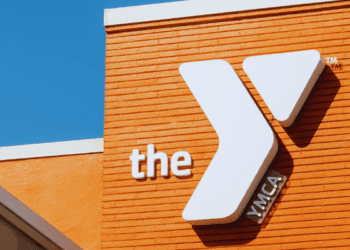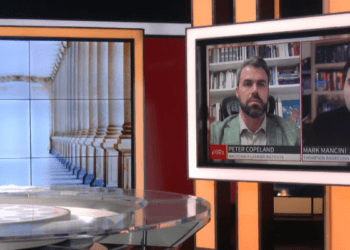Writing in the Toronto Star, Macdonald-Laurier Institute author Christian Leuprecht says that the problem with contraband tobacco is bigger in Canada than other jurisdictions around the world.
Canadians regularly consume more contraband tobacco products than those in other countries, he says.
He points to growing demand in Ontario as just one example, and he argues that Ontarians and their government should stop treating it as merely an issue of lost tax revenue because tobacco smuggling has strong links to serious crimes.
The Macdonald-Laurier Institute and Dawson Strategic are partnering on a series of events looking at the issue. The first meeting took place in Ottawa last month.
By Christian Leuprecht, Dec. 10, 2014
One of the measures of state failure is the relative size of the underground economy. So-called narco-states are rife with smuggled cigarettes, liquor, drugs and gasoline, and are a telltale sign that the institutions of government are not functioning as they should.
Inability to assert the right to tax is indicative of state failure or collapse. We commonly associate this phenomenon with select parts of the Balkans, Africa, the Middle East and Asia. But Canada?
Contraband tobacco is thought to incur global annual tax losses in the order of $40 billion-$50 billion (U.S.). Estimates range from 10.7 to 11.6 per cent of cigarettes consumed worldwide. Canada’s contraband cigarette problem is outsized and disproportionate by comparison: our illicit tobacco market is estimated at 15 to 33 per cent of all cigarettes consumed.
A recent report by the Ontario Convenience Store Association used butt counts to peg the size of Ontario’s market at 22.5 per cent — up from an estimated 21 per cent a year earlier. That makes Ontario the largest among North America’s 60 substate jurisdictions, and possibly the largest of any western democratic rule-of-law jurisdiction.
Ontario Finance Minister Charles Sousa is planning to make up some of the province’s now notorious budget shortfall by reining in the underground economy, especially contraband cigarettes. There is plenty to go after.
Indeed, in 2011 the Canadian Taxpayers Federation estimated lost revenue for cash-strapped Ontario government coffers at more than $1 billion annually. But if this revenue were so easy to recover, why hasn’t anyone thought of this before?
The federal excise rate on cigarettes currently amounts to $21.03 a carton. But tax rates alone can’t explain the problem: at $88.64 a legal carton, Ontario is the most lightly taxed province after Quebec. By contrast, untaxed contraband cigarettes sell for as little as $8 to $10 for a bag of 200.
Contraband cigarettes are purchased overwhelmingly by youth (sample butts around your local high-school yard), the poor and some minority groups whose disposable income is highly constrained and to whom cost savings in the order of 90 per cent are thus inherently attractive.
That large captive market, along with relatively easy retail, low enforcement priority (especially for municipal police), even lower penalties for getting caught (notwithstanding the criminalization of repeated offenders under the recent Bill C-10) and outsized profit margins have made contraband cigarettes lucrative and attractive.
Consider the following examples of the links between organized crime and contraband:
- Project Chateau in March 2009 resulted in the arrest of 22 people and the seizure of 298 cases of contraband tobacco, 20,000 methamphetamine pills, cocaine, marijuana, nine guns and about $75,000 in cash. Police suspect that the Hells Angels were involved.
- The RCMP busted a large cigarette-smuggling ring that included the notorious Hells Angels member Salvatore Cazzetta in June 2009 as part of Project Machine. Hells Angels members established contacts on Kahnawake territory, renting out a warehouse on the reserve to store contraband and money. Forty-six people in total were arrested and one kilogram of cocaine, 860 rocks of crack cocaine, 900 grams of marijuana, 4,000 methamphetamine tablets, 80 ecstasy tablets, 139 boxes of tobacco, 15,800 kilograms of tobacco, more than $161,500 and 12 weapons were seized.
- In April 2014 the RCMP in conjunction with provincial and aboriginal police raided various locations in Montreal and on the Akwesasne and Kahnawake territories, dismantling a network that smuggled raw leaf tobacco from North Carolina through Akwesasne and then Kahnawake for manufacture near Montreal. The arrested included at least one member of the Italian Mafia as well as an Akwesasne resident who owns an unlicensed cigarette manufacturing plant on the U.S. side. Forty thousand kilograms of tobacco, $45,000 in cash and 1,300 marijuana plants were seized in the raids.
Across North America, contraband tobacco has been linked to Hezbollah terrorist financing, procurement of dual-use technology in support of terrorism, credit card fraud, marriage and immigration fraud, drug, human and gun trafficking. Now that’s a “revenue problem.”
Christian Leuprecht is Associate Dean, Faculty of Arts, Royal Military College of Canada and cross-appointed to Queen’s University.






